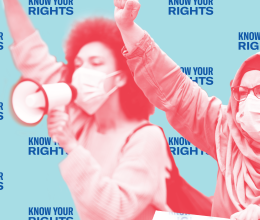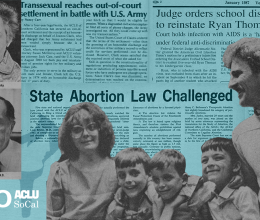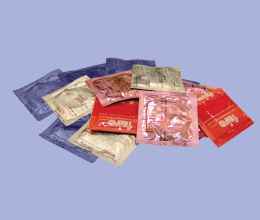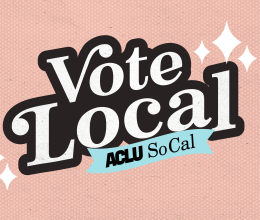
In 2001, a close relative of mine — a Black longshore worker at the Port of Los Angeles – joined a discrimination lawsuit when the port refused to hire qualified Black and Latine candidates. The workers fought against racism and won.
Two decades later, I followed in their footsteps and applied to work at the very same port for the Pacific Maritime Association (PMA). But little did I know that I, too, would face my own discrimination case at the port – except this time, as a pregnant worker.
—
Becoming a longshore worker is like winning the lottery. Out of 100,000 applicants, 20,000 are picked – with only 5,000 able to start immediate training. In 2018, I was one of the lucky ones.
Once selected, I had to pass several tests. Longshore work is physically taxing. Workers must be able to lash, or maneuver long bars weighing 50 to 75 pounds, to lock shipping containers into place.
After rigorous training, I passed and became what's called a “casual” worker. Casuals are essentially part-time employees with hourly pay, no guaranteed hours, and zero benefits.
But the hours are key. Casual workers with the highest accrued hours gain union membership and advance to permanent, full-time positions.
The International Longshore and Warehouse Union (ILWU) Local 13 represents the permanent workers at the port. Founded in 1937, the ILWU was formed to ensure equity in hiring and wages and guaranteed hours and safe working conditions.
My family member was a proud member of the union, which allowed them to reach a six-figure salary commensurate with the demands of the job. As a working parent, I needed those hours to guarantee that I can provide for my kids.
Women had always worked at the ports, and thanks to a lawsuit brought by women workers in 1983, women workers are allowed to become union members under the Golden Decree.
Despite these strides by women and workers of color, the PMA and Local 13 continue to promote a culture that is predominantly male.
—
When I started as a casual, I was still breastfeeding my third child. In California, employers are required by law to provide breast/chestfeeding parents the time and space to pump.
But when I asked my supervisor where I could pump during my break, he looked at me as if I were an inconvenience and told me to use the restroom.
Breast/chestfeeding parents know that a restroom isn't an ideal place to pump. The employee restroom was dirty and lacked privacy. I opted to pump in my car instead.
Over time, without any accommodation, I didn’t feel comfortable asking for pumping breaks. I grew engorged and sore and had stains on my shirt from leaking. Eventually, I missed days from work so I could continue to breastfeed my son, and I stopped breastfeeding earlier than I had planned.
No parent should have to choose between working or feeding their child.
But the discrimination got worse when I was pregnant with my fourth child. State law makes it clear that employers must accommodate their pregnant workers.
Lifting heavy objects and being exposed to toxic chemicals at the port is not safe when you are pregnant. But PMA and Local 13 refused to make accommodations even though there were light duties that pregnant workers like myself can do.
Out of desperation, I continued to work my regular duties. But when I was six-months pregnant, I hurt my pelvis operating a vehicle, and my doctor told me I had to stop working.
As the breadwinner in my family, I couldn’t afford to stop working. But for the sake of my child, I had no other choice.
Pregnant and breastfeeding workers should not be at a disadvantage. That’s why, with the support of the ACLU of Southern California, I recently filed a complaint with the California Civil Rights Department (CRD) for gender, pregnancy, and breast/chestfeeding discrimination.
I didn’t think I would have to fight against discrimination, but one valuable lesson I learned from my family is that we have to fight for our children’s and our own dignity.
If you are facing similar discrimination at a factory, school, farm, or at a port, please know that you have rights and you can win.
Kaiaunna Smith lives in Long Beach with her five children. On August 4, 2022, the California Civil Rights Department (formerly known as the Department of Fair Employment and Housing) filed Kaiaunna’s gender and pregnancy discrimination claim against PMA, ILWU Local 13, and ILWU.






